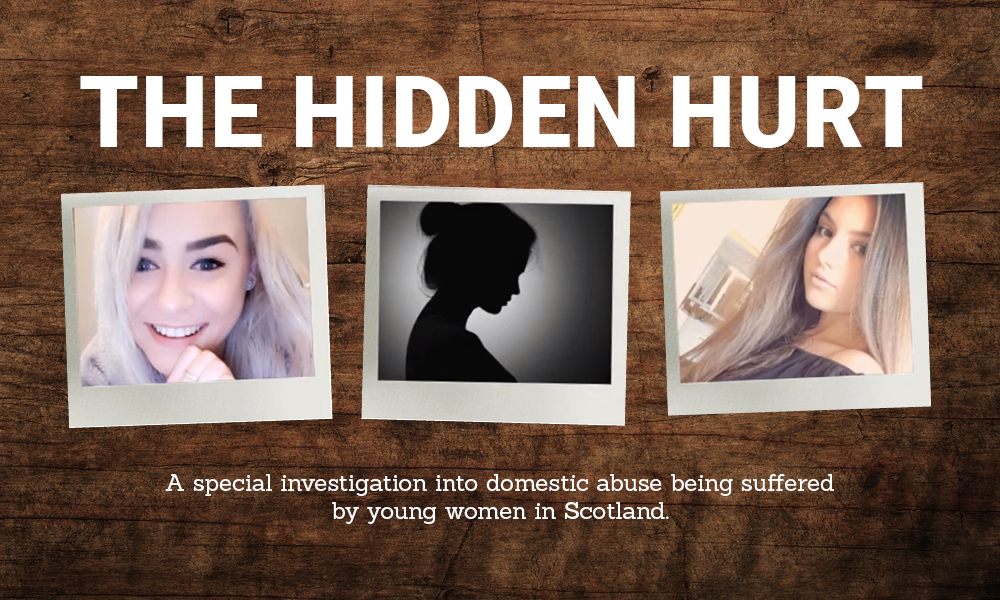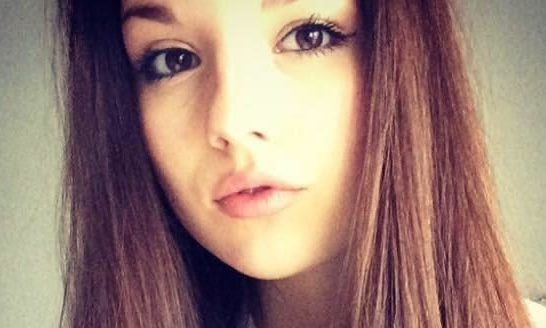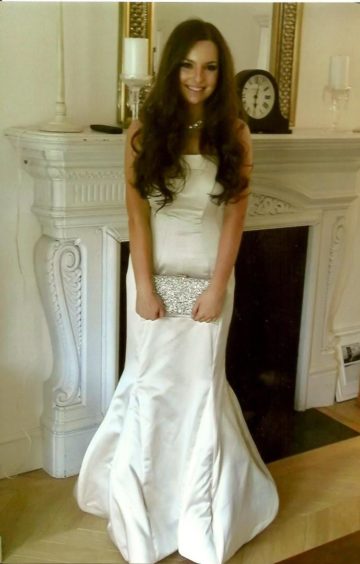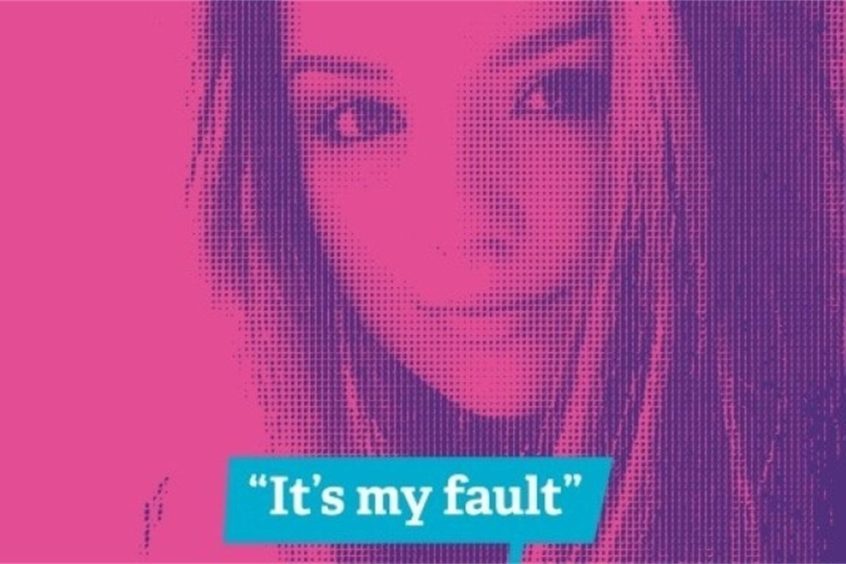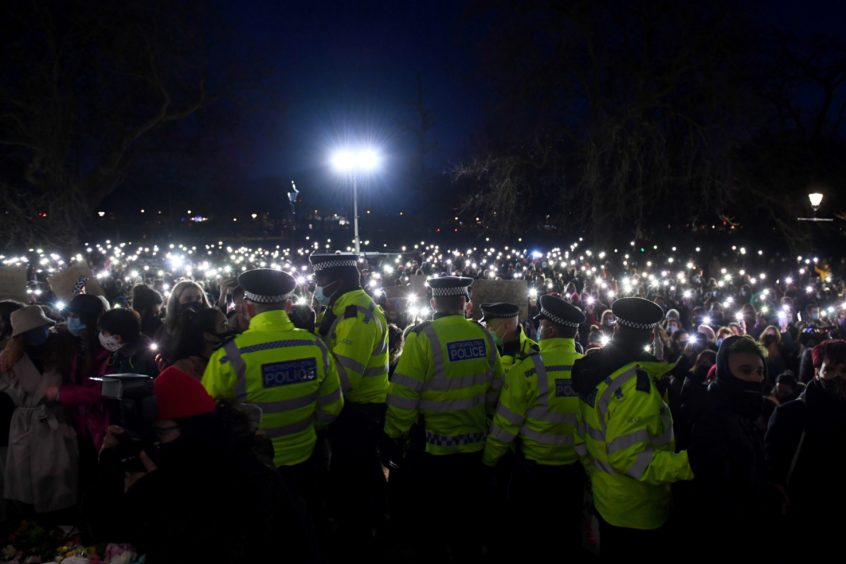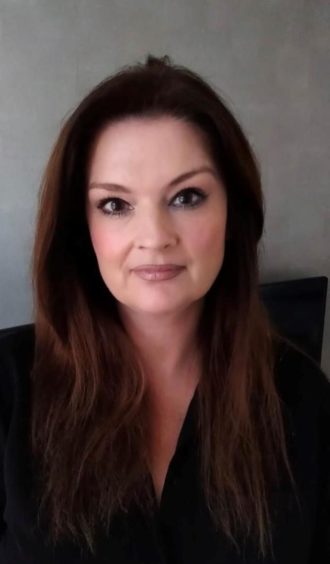There’s a heartbreaking photograph of Emily Drouet just a few weeks after she started her law course at Aberdeen University.
The teenager is smiling, her face full of enthusiasm and effervescence, and she is clearly relishing the opportunity to begin the next chapter in her young life, with a new city to explore and friends, colleagues and lovers still to meet.
Yet, within the next few months, the 18-year-old suffered both harrowing mental and physical abuse from her boyfriend Angus Milligan, which brutally pulled the rug from under her feet and erased the sparkle from her eyes.
Gradually, the halls of residence in which she dwelt turned into a very solitary place and, despite her parents, Fiona and Germain, sensing that something was wrong, they couldn’t monitor their daughter’s movements 150 miles away in Glasgow.
Then, on March 17 2016, they received the phone call which shattered their world, telling them that their beloved Emily had taken her own life in her lodgings.
It was the most devastating news, but it lit a spark in Fiona to ensure that if she could help it, no other family would be forced to endure the same dreadful sense of loss.
The Hidden Hurt: A special investigation into domestic abuse being suffered by young women in Scotland.
-
Emily’s story: An abusive relationship, a tragic death – and a mother’s brave fight to protect others
-
Rosie’s story: She wanted to give the cute boy another chance – but soon she’d be a serial rapist’s next victim
-
Neomi’s story: She always liked the bad boys – she thought she could fix him
She loved making other people happy
She said: “I have so many beautiful memories of our darling girl, not least the moment she was first put into my arms.
“From the day she was born, Emily filled our lives with so much love and happiness. She was always a very uncomplicated child, loved having fun and seeing others having fun as well – there was no side to her, what you saw was what you got.
“She loved making other people happy – to see Emily with her younger sister and brother was beautiful and I treasure these memories.
“I remember, just before she was leaving for university, she took her brother out to the science centre in Glasgow, so she could spend some special time with him. That was who she was, always so loving and warm, and that’s why she is so sorely missed.
“I wish I could say that time was a healer, I guess that is something I had pinned my hopes on, but sadly it’s not. You don’t heal, you just learn how to survive the harsh new reality you have been left with and learn to carry the pain with you every day.
“I have got a little better at being able to control when I cry and much better at putting a face on, but behind closed doors, it is a different story.
“Sometimes, the grief is still so utterly overwhelming that it is difficult to function. I have a wonderful husband and two incredibly wonderful children, but my heart will always ache, it’s an agony which is indescribable.
“All I want is my daughter back with me, I want to stroke her hair, hold her close and make everything okay, and when reality hits, the pain brings me to my knees.
“I have to live in hope that one day it will lessen, that one day I will feel true joy again, but although it has been five years, it still feels very raw.”
Fiona has tried to make a difference since her loss
At Aberdeen Sheriff Court, Milligan admitted acting in a threatening or abusive manner towards Emily, sending messages with offensive content and assaulting her by choking her.
He was sentenced to 12 months’ supervision and ordered to carry out 180 hours of unpaid work, later reduced to 120 hours.
Since the tragedy occurred, and despite her anger at Milligan avoiding a prison sentence, Fiona has worked with educational and governmental bodies to create new initiatives in a bid to help people who suffer as her daughter did.
It is an ongoing process, but Fiona believes the campaign is already making progress.
She said: “After losing Emily, I felt there was no choice but to ensure that nobody else was plunged into this darkness.
“Thinking of the pain which Emily went through at the hands of Angus Milligan destroys me.
“Not only the physical pain of the attacks, but the emotional turmoil she went through as he systematically destroyed her – and thinking of the fear she lived in tears me apart.
“I am very proud of the change the ‘EmilyTest‘ is bringing, not least in the development of our Gender Based Violence (GBV) Charter for universities and colleges.
“The aim is to have the charter serve as an external mark of excellence, helping students and their families or guardians make informed choices when it comes to where they study. Gaining charter status means institutions are meeting what we deem are the minimum requirements for a safe campus in terms of intervention and prevention.
Everybody has to work together to help students
“Some requirements are robust reporting systems, data collection, staff training in GBV and clear pathways to support [students].
“This will also serve as an internal guide for institutions to continually strive for excellence. We have also developed a first responders risk assessment tool, ensuring that when someone discloses GBV, or if it is suspected, cases are escalated and appropriate safeguarding measures are put in place.”
Fiona has a very personal motivation for pursuing these measures, but she’s well aware of how violence against women remains a massive issue in the wider world.
And she has been shocked by the recent abduction and murder of 33-year-old Sarah Everard in London and how the Metropolitan Police’s allegedly heavy-handed response to a women’s vigil held last weekend has sparked condemnation across the world.
‘We have to show abusers this will not be tolerated’
Fiona said: “Like the rest of the country, if not the world, I have been so affected by the loss of Sarah Everard and I am devastated for her family and friends.
“I hope that, one day, they will take comfort from the impact their daughter has had on the world, but I am so saddened by the victim blaming I have seen on social media.
“This included one high-profile celebrity stating: ‘I wouldn’t go out in the dark’.
“Sadly, that comment is reflective of many attitudes across society where we unconsciously – and, in some cases, consciously – blame victims.
“‘She was only walking home’ is such a powerful message and I hope that the momentum continues and that Sarah’s name will come to be remembered for the change in society that is hopefully to come rather than what happened to her.
The campaign will have to continue for many years
“The truth is that no one asks to be abused, no one ever deserves it, and, as a society, we need to all play our part in changing this incredibly toxic mindset.
“Sarah’s tragic death shows just how far we still have to go to eradicate gender-based violence. But we must do all we can to show abusers that this will not be tolerated.”
Fiona has poured herself into her efforts to transform the culture which surrounded the death of her beloved daughter.
But the impact of her loss cannot be overstated.
As she said: “Emily would never have walked past somebody in need and we know she would want us to ensure nobody else is left to suffer in silence like she was.”
